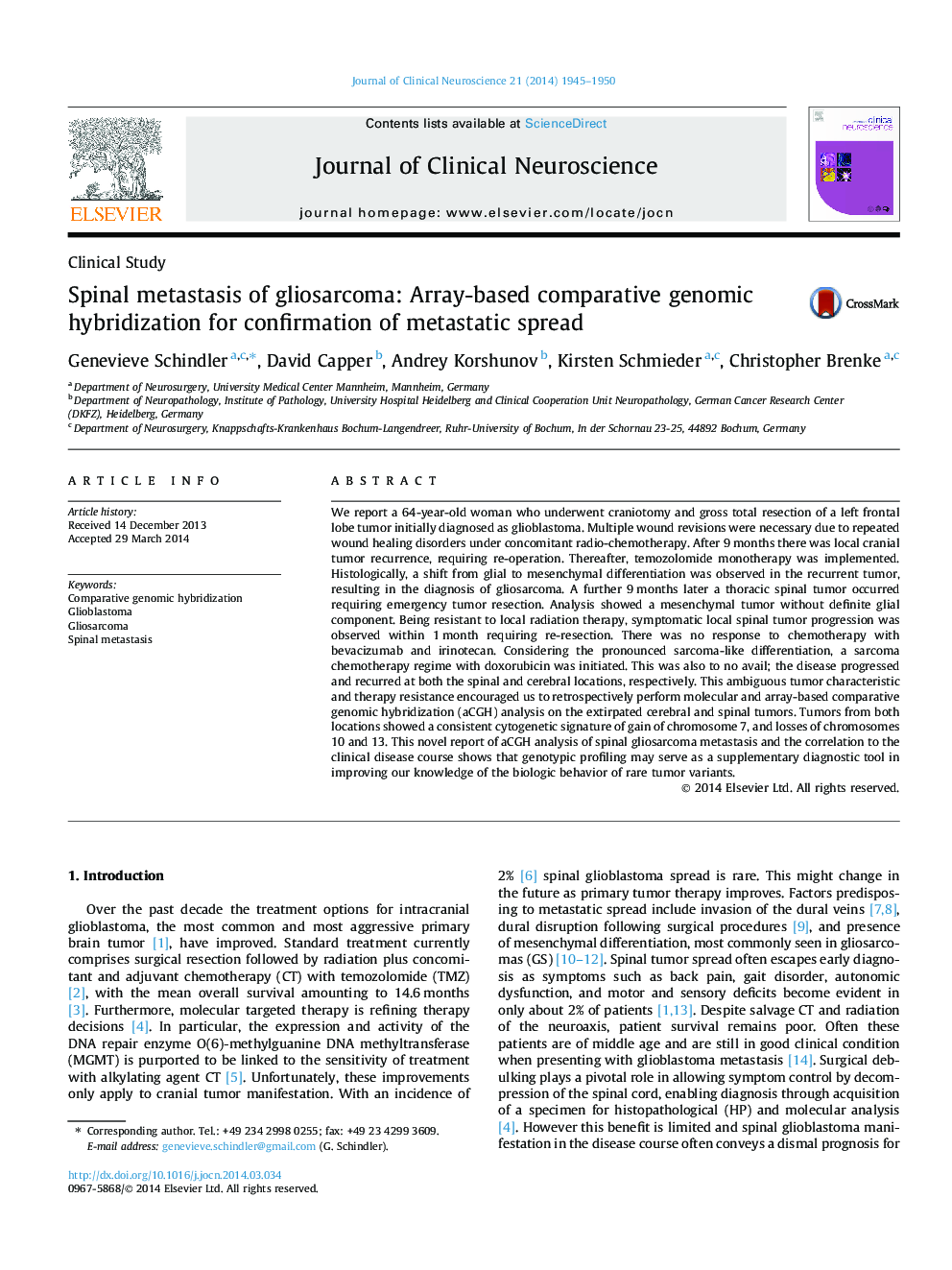| Article ID | Journal | Published Year | Pages | File Type |
|---|---|---|---|---|
| 3059127 | Journal of Clinical Neuroscience | 2014 | 6 Pages |
We report a 64-year-old woman who underwent craniotomy and gross total resection of a left frontal lobe tumor initially diagnosed as glioblastoma. Multiple wound revisions were necessary due to repeated wound healing disorders under concomitant radio-chemotherapy. After 9 months there was local cranial tumor recurrence, requiring re-operation. Thereafter, temozolomide monotherapy was implemented. Histologically, a shift from glial to mesenchymal differentiation was observed in the recurrent tumor, resulting in the diagnosis of gliosarcoma. A further 9 months later a thoracic spinal tumor occurred requiring emergency tumor resection. Analysis showed a mesenchymal tumor without definite glial component. Being resistant to local radiation therapy, symptomatic local spinal tumor progression was observed within 1 month requiring re-resection. There was no response to chemotherapy with bevacizumab and irinotecan. Considering the pronounced sarcoma-like differentiation, a sarcoma chemotherapy regime with doxorubicin was initiated. This was also to no avail; the disease progressed and recurred at both the spinal and cerebral locations, respectively. This ambiguous tumor characteristic and therapy resistance encouraged us to retrospectively perform molecular and array-based comparative genomic hybridization (aCGH) analysis on the extirpated cerebral and spinal tumors. Tumors from both locations showed a consistent cytogenetic signature of gain of chromosome 7, and losses of chromosomes 10 and 13. This novel report of aCGH analysis of spinal gliosarcoma metastasis and the correlation to the clinical disease course shows that genotypic profiling may serve as a supplementary diagnostic tool in improving our knowledge of the biologic behavior of rare tumor variants.
